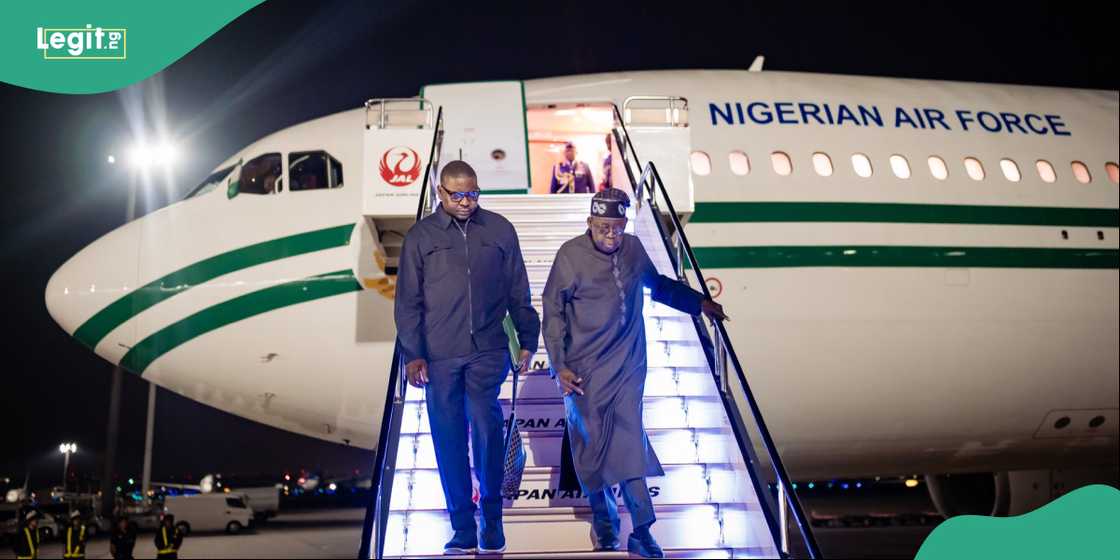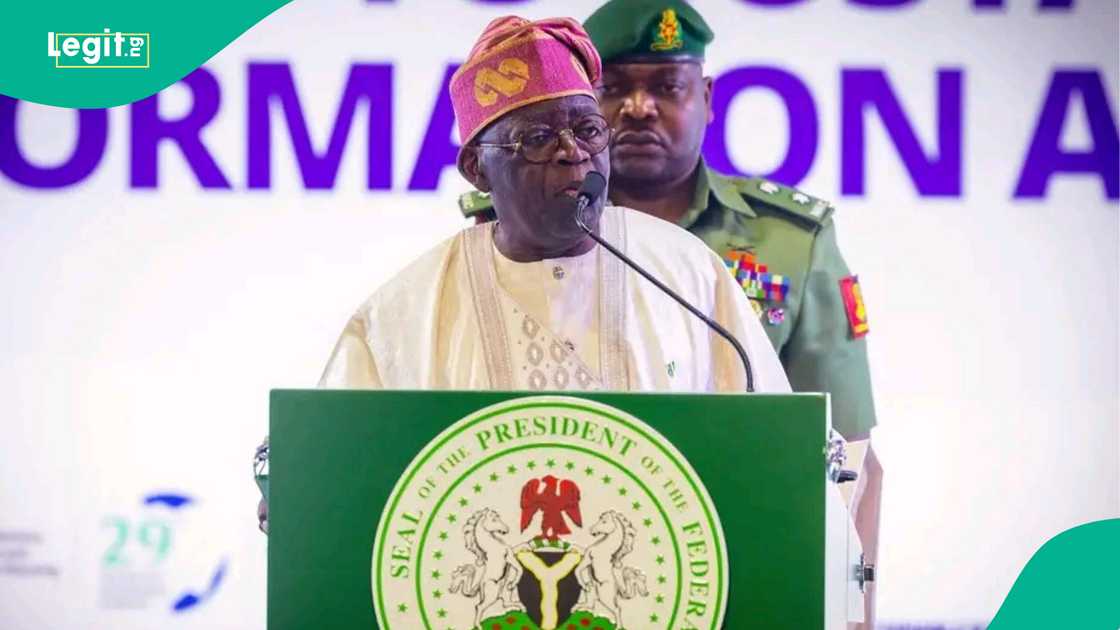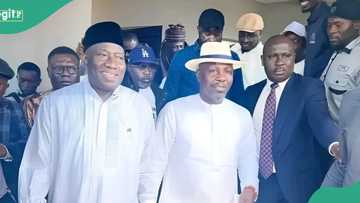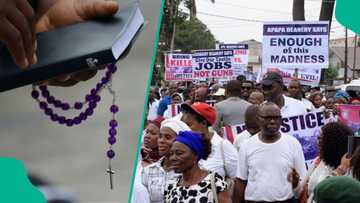Tinubu Returns to Abuja After Counter-Terrorism Meeting in Rome
- President Bola Tinubu returns to Abuja after participating in the Aqaba Process Heads of State meeting in Rome, focused on counter-terrorism
- The high-level summit, co-chaired by Jordan and Italy, drew leaders from across continents to strengthen global action against violent extremism
- Tinubu met with Italian Prime Minister Giorgia Meloni, Vatican officials, and U.S. representative Massad Boulos on security and religious harmony
President Bola Ahmed Tinubu has returned to Abuja following his participation in the Aqaba process heads of state and government-level meeting held in Rome, Italy.
The forum brought together global leaders to discuss new strategies for combating terrorism and violent extremism, with particular focus on threats facing West Africa.

Source: Facebook
According top presidential aide Bayo Onanuga, the Aqaba Process, launched in 2015 by His Majesty King Abdullah II of Jordan, is a multilateral counter-terrorism initiative co-chaired by Jordan and Italy.
The Rome session, hosted at the National Gallery of Modern and Contemporary Art on October 15, centered on deepening cooperation among countries and closing operational gaps in security coordination.
Global leaders unite against terrorism
The meeting was attended by several world leaders, including King Abdullah II of Jordan, Italian Prime Minister Giorgia Meloni, and the Presidents of Nigeria, Chad, Paraguay, Sierra Leone, and Togo.
Also present were Azouz Nasri, President of Algeria’s Upper House, and delegations from Côte d’Ivoire, Kazakhstan, Mauritania, Senegal, and Uzbekistan. Security experts and special envoys from across the world participated in the closed-door discussions.
Tinubu meets global partners in Rome
On the sidelines of the summit, President Tinubu held bilateral talks with Italian Prime Minister Giorgia Meloni and Massad Boulos, Senior Adviser on Arab and African Affairs to U.S. President Donald Trump.
The meetings explored avenues for strengthening security cooperation, investment, and development support between Nigeria and its global partners.
The Nigerian leader also met with the Vatican’s Secretary of State, Cardinal Pietro Parolin, to discuss issues of religious harmony and mutual understanding within Nigeria.

Source: Facebook
Their conversation focused on countering disinformation campaigns that misrepresent the country as intolerant of religious diversity.
Since its creation, the Aqaba Process has convened over 30 sessions at different levels, from technical meetings to high-profile summits. It operates on three foundational principles: prevention, coordination, and the closing of operational gaps to improve the global response to terrorism.
Legit.ng understands that the Aqaba Process meeting is co–chaired by the Hashemite Kingdom of Jordan and the Italian Government. It recognises the complex security challenges confronting West Africa, including the expansion of terrorist networks, the growing crime-terror nexus and the increasing overlap between land-based terrorism in the Sahel and the maritime piracy in the Gulf of Guinea.
Support grows for state of emergency
Some retired senior military officers have backed the call by a Lucky Irabor (retd), former chief of defence staff (CDS), for the declaration of a state of emergency to effectively address the protracted Boko Haram insurgency.
This comes as President Tinubu tries to overhaul Nigeria's security framework, prioritising the fight against terrorism amid a 'Renewed Hope' agenda pursuit.
Retired Major General Dayo Olukoju said while a state of emergency was necessary, it should be complemented by a broader, multilateral approach that addresses the root causes of terrorism.
Source: Legit.ng





